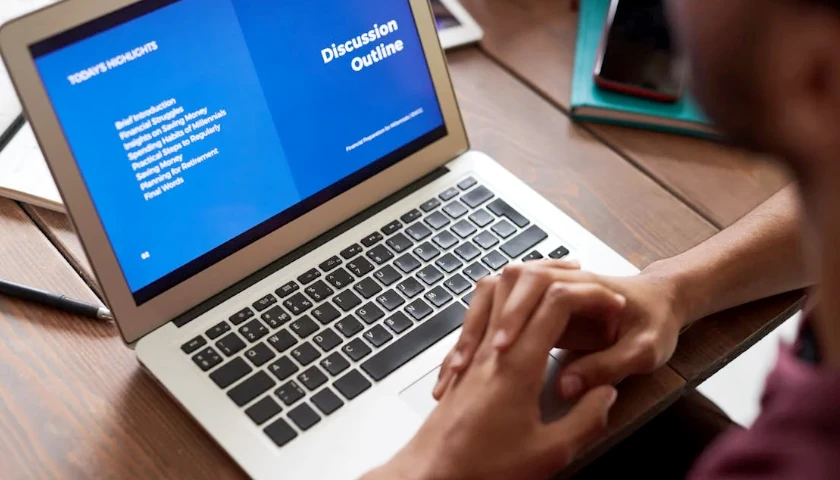by Brendan Clarey
Students at a Detroit combined virtual school took their online credit recovery courses 20 times faster than the courseware provider suggests in the 2023-24 school year.
According to a public records request filed with Detroit Public Community School District, students took their 11th and 12th-grade English language arts classes in about four hours, while the courseware provider Edgenuity recommends students spend 80 hours on such courses.
All 23 students who took the 11th-grade ELA online credit recovery class at Detroit Lions Academy completed the course in four hours, 14 minutes and 20 seconds of active time, with an average grade of 86%.
The 11 students who took the 12th-grade virtual course at the Academy spent four hours, three minutes and 24 seconds in active time on it; they received an average grade of 80%. Both classes were for the first semester.
Edgenuity, which provides the English classes to DPSCD, says on its website that to “optimize student learning outcomes and make sure that students and teachers are using Imagine Edgenuity effectively,” the company recommends students spend three or four hours per week on virtual courses.
Edgenuity also says it expects an “un-customized, year-long” credit recovery course to take “80 hours of active time to complete.”
All 34 Detroit Lions Academy students completed the entire course in what should have only been a week’s worth of work. DPSCD did not respond to Chalkboard’s requests for comment concerning this discrepancy in time for publication.
The 12th-grade ELA credit recovery course has been featured on social media by a user who posts videos about completing students’ online coursework for them for a fee.
The user (which Chalkboard will not identify to avoid promoting) said, “I can do one class in a day if it’s unlocked fully.”
At the time of publication, it was unclear what safety measures, if any, DPSCD uses to prevent students from sharing login credentials with others to complete their work. Edgenuity says on its website that it offers IP blocking to keep students from working on schoolwork outside the home.
The courseware provider also offers an academic integrity tool called “speed radar,” which “automatically flags tasks for review when students are progressing through activities more quickly than expected.”
The company did not respond to questions about what would set off the speed radar in time for publication.
As Chalkboard has previously reported, school districts have implemented online credit recovery because it’s cheaper than sending students back to a class already at capacity.
“Credit recovery offers the opportunity for students in grades 9-12 to complete courses and earn credits toward graduation or promotion requirements,” the DPSCD website says concerning its program. “Students who have already taken a course and earned a failing grade are eligible to take the credit recovery offering of that course.”
Critics of online credit recovery courses say they lead to long-term negative outcomes for students, including lower pay in the workforce and ultimately “cheat kids of learning.”
According to a response to Chalkboard’s request for information, West Side Academy, Legacy Academy and Detroit Lions Academy merged into one school during the 2023-24 school year.
As Bridge Detroit reported last year, online credit recovery has become a way for the district to increase its graduation rates. About half of the 14,000 high school students in the district during the 2021-22 school year were enrolled in credit recovery courses, and nearly 5,000 were in credit recovery courses in the 2022-23 school year, Bridge reported.
Detroit’s graduation rate has increased as a result. During the 2021-22 school year, West Side Academy saw a 25.6 percentage point increase, according to an announcement from the district.
Between 2021 and 2023, the district saw its overall graduation rate increase by 9.7 percentage points from 64.5% to 74.3%, the district touted in a press release.
Researchers have found online courses are easy to manipulate, do not challenge students and sometimes reuse test questions.
– – –
Brendan Clarey is a contributor to The Center Square.





